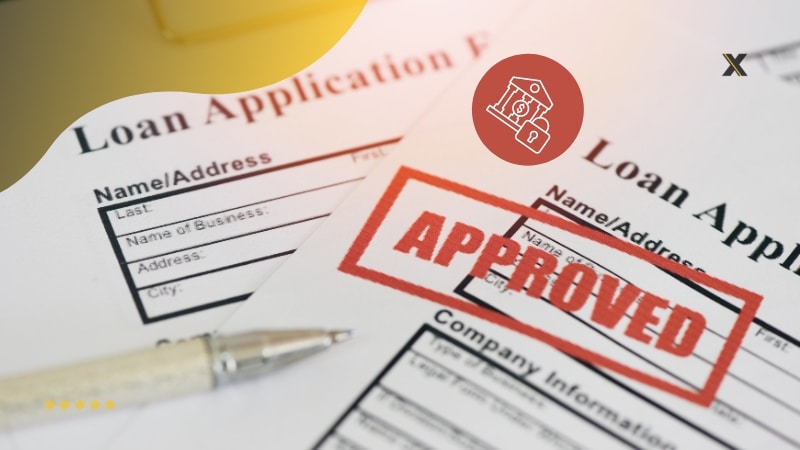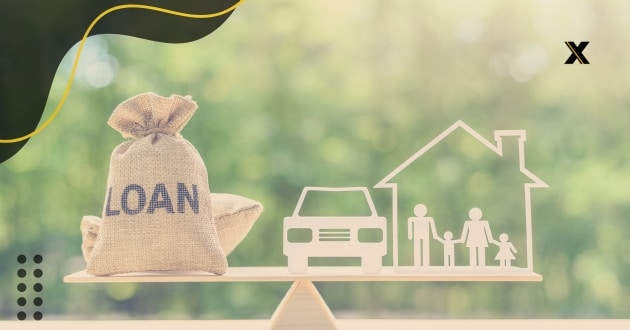Advertisements
Secured loans for bad credits serve as a crucial financial tool for individuals who have struggled with maintaining a high credit score. In today’s economic climate, many people find themselves facing unexpected financial challenges, which can lead to a decline in their creditworthiness. As a result, traditional lenders may be reluctant to offer unsecured loans, leaving those with bad credit in a difficult position. However, secured loans provide a viable alternative.
These loans are designed to offer financial support to individuals who might otherwise be considered high-risk by lenders. By using an asset such as a home, vehicle, or other valuable property as collateral, borrowers can access the funds they need despite their low credit score. This arrangement not only helps the borrower meet immediate financial needs but also offers the lender a sense of security, knowing that there is a tangible asset backing the loan.
The increasing demand for secured loans for bad credits highlights the importance of understanding how these loans work, their advantages, and the potential risks involved. For many, they represent a pathway to financial stability, offering a chance to rebuild credit and manage debt more effectively.
As we delve deeper into the details of secured loans, it becomes clear that they can be a practical solution for those who need to borrow money but face the barrier of poor credit.
Advertisements
What Are Secured Loans for Bad Credits?
Secured loans are a type of financial product where the borrower provides an asset as collateral to secure the loan. This collateral can be anything of significant value, such as a home, car, or other personal property.
The primary purpose of this arrangement is to offer the lender a form of security. If the borrower is unable to repay the loan, the lender can seize the collateral to recover the outstanding debt. This security makes secured loans a more accessible option for individuals with poor credit.
Transitioning to the specifics, secured loans for bad credit tailored for those who have a lower credit score, which would typically disqualify them from obtaining an unsecured loan.
In contrast to unsecured loans, where the approval is heavily based on the borrower’s credit history and income, secured loans rely on the value of the collateral. As a result, even individuals with poor credit histories can obtain these loans, provided they have a valuable asset to offer as security.
Advertisements
Furthermore, while many might think that bad credit limits their borrowing options, secured loans actually open up opportunities that might otherwise be closed. For instance, those who seek the Best Personal Loans often find that secured loans offer favorable terms, such as lower interest rates and higher borrowing limits.
This is particularly beneficial for those looking to consolidate debt or finance a large purchase. Moreover, secured loans for bad credit provide a way for borrowers to rebuild their credit score over time.
By making consistent, on-time payments, borrowers can improve their credit history, which may eventually lead to qualifying for the Best Personal Loans in the future without needing to offer collateral.

How Secured Loans for Bad Credits Work
Once the borrower identifies a suitable asset, the next step is to apply for the loan. During the application process, the lender will assess the value of the collateral and determine the loan amount based on this valuation.
For example, if you are using your home as collateral, the lender may offer a loan amount that a percentage of your home’s appraised value. This process ensures that the lender protected in case the borrower defaults on the loan.
After the loan approved, the borrower receives the funds, but the lender places a lien on the collateral. This lien gives the lender a legal claim to the asset, which means that if the borrower fails to make the required payments. The lender can seize the asset to recover the outstanding balance. This aspect of secured loans what makes them more accessible to those with bad credit, the lender’s risk is mitigated by the collateral.
Transitioning to the repayment phase, borrowers required to make regular payments on the loan according to the agreed-upon schedule. As long as the borrower continues to make payments on time, the collateral remains in their possession.
Finally, it’s worth mentioning that some lenders specialize in offering secured loans for bad credit. Providing tailored solutions that consider the unique challenges faced by those with lower credit scores. These lenders may offer more flexible terms or additional support during the repayment period.
For more detailed information and to explore specific options, you might consider visiting official resources such as Experian’s secured loan page or other reputable financial institutions that offer secured loans. These sites provide valuable insights into how secured loans operate and can help you make an informed decision.
Advantages
- Lower Interest Rates: One of the primary benefits of secured loans the lower interest rate compared to unsecured loans. Since the lender has the security of the collateral. They can afford to offer a more competitive interest rate, making the loan more affordable over time.
- Higher Loan Amounts: Secured loans typically allow borrowers to access larger sums of money. The value of the collateral plays a significant role in this. Enabling those with valuable assets to borrow more than they could with an unsecured loan.
- Improved Approval Chances: For individuals with bad credit, getting approved for a loan can be difficult. However, the presence of collateral increases the lender’s confidence in the borrower’s ability to repay. Thereby improving the chances of approval even with a low credit score.
- Flexible Repayment Terms: Many lenders offer flexible repayment terms for secured loans. Allowing borrowers to choose a repayment schedule that suits their financial situation. This flexibility can make it easier to manage monthly payments and avoid defaulting on the loan.
Comparing Secured Loans to Other Options
When exploring secured loans for bad credit, it’s important to compare them to other available loan options to fully understand their benefits and drawbacks. Transitioning from the discussion of secured loans, let’s delve into how they stack up against unsecured loans and payday loans. Which are also common choices for individuals with poor credit.
First, consider unsecured loans. Unlike secured loans, unsecured loans do not require any collateral. Meaning the lender relies solely on the borrower’s credit history and income to assess risk. For individuals with bad credit, this can make unsecured loans much harder to obtain. As lenders often view them as high-risk borrowers.
Even when approval is granted, unsecured loans usually come with higher interest rates and lower loan amounts. Reflecting the increased risk to the lender. Therefore, while unsecured loans might seem more convenient due to the lack of collateral. They often end up being more expensive and less accessible for those with bad credit.
On the other hand, payday loans present another alternative. These short-term loans are designed to be repaid with the borrower’s next paycheck, often within a few weeks.
Payday loans typically carry exorbitant interest rates and fees. Which can trap borrowers in a cycle of debt if they are unable to repay the loan on time. Transitioning from payday loans back to secured loans, it’s clear that while payday loans offer quick cash. They are far riskier and more expensive in the long run, particularly for those already struggling with bad credit.
Conclusion
In conclusion, secured loans for bad credit present a viable option for individuals struggling with low credit scores. By leveraging an asset as collateral, borrowers can benefit from lower interest rates, higher loan amounts, and improved approval chances.
While it’s essential to carefully consider the risks, particularly the potential loss of the collateral. Secured loans can provide the financial support needed to overcome temporary financial challenges. As always, borrowers should evaluate their financial situation and explore all options before committing to a loan agreement.




